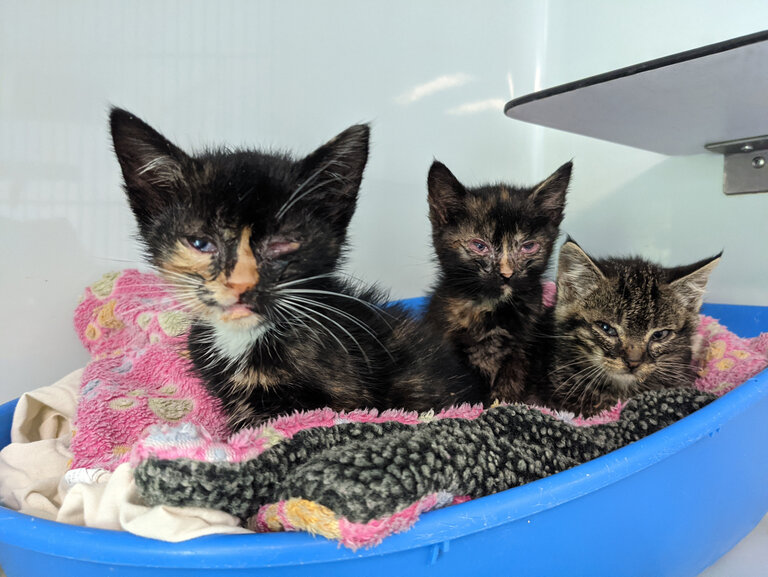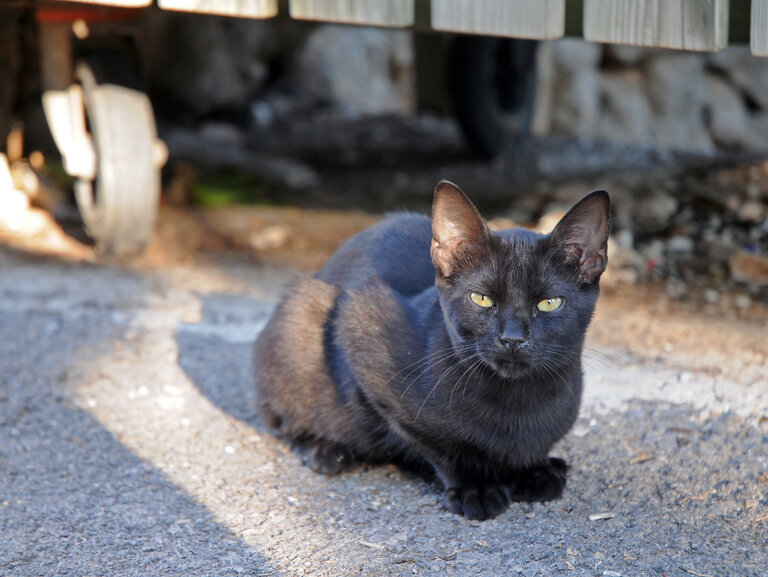The German Animal Welfare Federation is concerned about the coming months and an impending "kitten glut" in spring. The umbrella organization for animal shelters assumes that the number of unwanted kittens found, surrendered or abandoned in the already overcrowded animal shelters will skyrocket. At the same time, the number of kittens that die prematurely on the street without human care is increasing. The cause of the "kitten glut" are unneutered outdoor cats from private households and street cats that reproduce uncontrollably. The German Animal Welfare Federation is therefore renewing its call - as part of the "Every cat's life counts" campaign - for a nationwide neutering requirement for outdoor cats.
"The federal government has obviously not recognized the seriousness of the situation. It is disappointing that the misery of cats is simply being ignored," criticizes Thomas Schröder, President of the German Animal Welfare Federation. "The next few months will be an extreme ordeal for animal welfare organizations and animal shelters due to the glut of kittens. They are already at their limit and are being left alone with countless cats. At the same time, the suffering of street cats is growing. There is now an urgent need for a nationwide castration obligation in the Animal Welfare Act. This is the only way to stop the uncontrolled proliferation of animals, end their suffering and relieve the burden on animal shelters," says Schröder.
CAT SUFFERING IS PUTTING ANIMAL SHELTERS TO THE TEST
The "Big Cat Protection Report" compiled by the German Animal Welfare Federation shows that cat suffering in Germany has reached dimensions that animal welfare organizations and animal shelters can hardly cope with on their own. The sudden increase in the number of kittens in the coming spring and summer months will exacerbate the space problem in animal shelters, which are already usually full, and cause more work and very high costs. Many of the kittens are in a critical condition. Weakened by illness, parasites, injuries and hunger, they require extensive care and attention. Orphaned kittens tie up a lot of resources as they have to be looked after around the clock. Animal shelter staff also have to get shy kittens used to human contact.
KITTENS BORN ON THE STREET DIE PREMATURELY
More kittens in spring and summer also means that the number of kittens that die miserably on the street increases massively during this time. "While a domestic cat in human care can live for 20 years, the life expectancy of a cat born on the street is often only a few months," explains Dr. Dalia Zohni, specialist for pets at the German Animal Welfare Federation. 96 percent of the local animal welfare organizations surveyed by the German Animal Welfare Federation also confirm that kittens from street cats have a worse chance of survival than animals born in human care.
Note to the editors: You can find the "Big Cat Protection Report" here: as a PDF www.jetzt-katzen-helfen.de/report








